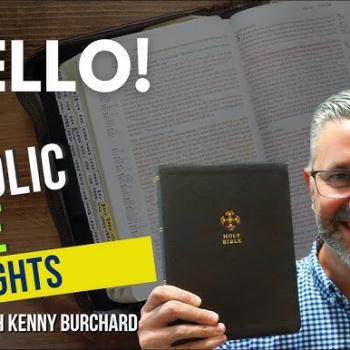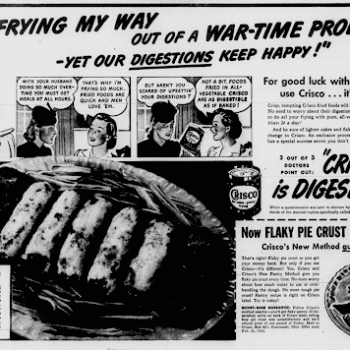. . . and a bit of unsolicited advice to young couples, if I may . . .

Today is our 34th anniversary. I wrote this 14 years ago on our 20th anniversary.
*****
Twenty years! It’s unbelievable how one’s perspective of time changes as you get into your 40s. Twenty years now seems like five did when I was 20 or 25.
I think it is neat that today it is a sunny, gorgeous fall day in the Detroit area, with temperatures in the low 70s. This is exactly how it was on our wedding day. Then we went down to the Smoky Mountains for our honeymoon and hit the fall colors at exactly the peak. It was truly breathtaking and spectacular, and perfect for Autumn worshipers like we were then and now. We went hiking in the woods today in the middle of writing this. It was glorious. There are some great woods near Henry Ford’s mansion, only a few miles from our house.
Where do I begin? This is my “open anniversary card” to my wonderful wife Judy. Usually, private cards are the norm, but once in a while I think it is appropriate to publicly sing the praises of your spouse and to share with the world the love and pride that you feel. I am delighted to do so.
I do love her with all my heart and consider myself a very happy man, and blessed to have such a woman for my wife. This was the second-best decision I ever made in my life (second after the God-ordained choice to become a serious disciple of Jesus in 1977). Judy is, I think, everything that God intended women to be: gentle, sweet, very compassionate towards others (when she hears of some tragedy, she will often start crying, even if it involves a stranger), understanding, exceedingly wise, yet innocent and childlike in exactly the right sense of those words, feminine, patient (after all, she lives with me!), a good listener, sympathetic, a lover of good art and music and nature, romantic (in all senses of the word), fun-loving, a marvelous mother, forgiving and merciful, soft-spoken, passionate and principled about Christian truths and beliefs. The list is endless.
What made me fall in love with Judy back in March of 1984 was (apart from her obvious beauty) the fact that she was a godly, caring woman (as seen in the above listed traits). That, to me, says it all. But there is a story here, and I would like to briefly recount it, because I think it might have some value for young people today who are in the process of selecting a lifelong mate.
Judy and I are very compatible and happily married. We like so many of the same things, it is amazing. I’m not saying we have the perfect marriage, or trying to claim some great credit for ourselves. We both have faults (I am stubborn, too critical, often compulsive, a workaholic, and a creature of sometimes too-inflexible routine and habit, among many other faults, and my wife has a bit of a temper, though no one seems to know that except me :-), and we fight sometimes.
But on the rare occasions that we do, we usually resolve it “before the sun goes down” (as the Bible recommends) and we are very careful not to lash out in those hurtful-type words that can cause long-lasting emotional damage, lodge in one’s memory, and erode trust. Our “fights” are what many people would call merely “mild disagreements.” We both know how to say we are sorry when we need to.
Our compatibility and happiness are not our own doing, or to our credit. All the glory goes to God. But it is true that we were both very careful in how we chose a marriage partner. Even that is by God’s grace, yet God (in some mysterious way) gives us the freedom to choose, in matters of marriage as well as spirituality. As we look back, we think the “secret of our success” are the following factors:
1. We were platonic friends first, for a year-and-a-half.
2. We both prayed very hard for our mate, and didn’t rush into a new “rebound” relationship after both of us had been hurt in previous relationships.
3. We both waited on God and for the right person, tried to trust Him, and were very selective; allowing God to guide and confirm the choice that we made. This involved a great deal of loneliness and hardship for both of us (believe me!), but it worked out in the end.
4. We didn’t have sex until we were married.
5. A realization that what may appeal at first to our senses or in a purely erotic way may not always be the best choice in the long run.
These are all very difficult paths to follow; make no mistake about it. But we believe that this is how God designed the love and marriage relationship between a man and a woman. If you fall “madly” in love “head over heels” right away (#1), obviously you don’t gain an accurate understanding of the nature and character of the person you may eventually intend to marry. You know: “love is blind.” This is no way to enter into the possibility of one of the most important and far-reaching choices one makes in life. Now, granted, such things happen sometimes and we have relatively little control over them.
Yet we can take steps to avoid a total domination of the powerful instincts of “new love.” We have the power to limit time together and so forth, so that a more rational decision-making process can occur. Judy and I didn’t have this “animal attraction” right away, as it happened. But as far as we are concerned, that was better. We got to know each other very well, and then the “serious / romantic” feelings and desires started to naturally follow.
The factors of #2 and #3 are related. We think it is supremely important to be willing to wait and suffer for the right person to come along, and to trust God for that eventuality. I know how difficult this is. I lived it for many years (I had hardly any dates between my senior year in high school and age 25; I was so selective). I probably took the principle of “pickiness” too far, in retrospect, but I am still happy that I was too selective rather than not enough, so that I avoided possibly getting “hurt” and “burned” many times, or hurting someone else.
#4 is self-evident (or should be, but is less and less, these days, in our culture), and much has been written about it from a Christian perspective (see, e.g., my paper, Dialogue: Is Premarital Sex Wrong?). No one who is having sex with someone else is in any state of mind to make such a serious life-choice as marriage. Sex is too dominant and powerful to allow for rational deliberation. That’s precisely why God designed it solely in the context of a lifelong, committed relationship, where it belongs. Apart from that, it is highly dangerous and destructive. Over 40 years of the vaunted (and abysmally failed) sexual revolution has demonstrated that beyond any doubt, for all who care to see.
My only direct advice to young couples is to make sure you pick someone who shares your values in this regard. Otherwise, forget it. The temptation is too strong to be resisted unless both people are in absolute agreement that premarital sex is wrong. We know that very well from our own experience, because abstaining with someone I knew I was going to marry, in the passionate throes of young love, was perhaps the most difficult thing I have ever willingly chosen to do in my life (thus one I am quite proud of). C. S. Lewis wrote that it is the person who resists temptation who understands far more of its power than the one who readily gives into it.
The factor of #5 has caused much misery and unhappiness, I think. It is simply untrue that we can know that we are compatible with a person at first glance. Sexual attraction and “chemistry” and “hitting it off right away” are not the final barometers of “our type” of girl / guy. I know for a fact that the type of woman I am naturally attracted to (the very outgoing, vivacious, “bubbly” type) would not have been the kind of personality that works best with me in a marriage situation.
Given the choice on my own, apart from the more serious considerations above, I would have chosen that type of personality, but I am convinced that I wouldn’t have been nearly as happy. This holds for me alone, with my own particular temperament and personality and lifestyle. Everyone has to determine this for themselves. But I have often heard that we ought to get to know a person for at least a year until we can conclude that we know them very well at all. After all, everyone “puts their best foot forward” at first in relationships. That is not a reliable guide for what a person will be like 10, 20 years down the line.
I hope my “preaching” is not taken the wrong way. I’m just trying to share a few things that I think I have learned about love and marriage, by God’s grace, in order to perhaps help a few young couples avoid needless hurt, misery, and heartbreak. No one seems to talk very much about these things, but I think they are extremely important, because a wrong choice in this area can have the effect of changing one’s entire life, and determining whether it will be essentially a “happy” or an “unhappy” one — at least in terms of the marriage relationship and related family matters.
I am convinced, more than anything else, that to achieve such happiness, one must choose the person who is best for their particular personality and compatible in all the important areas: religious commitment (above all), attitude towards children and child-rearing, interests, moral values, attitude towards money and life goals, etc.
Getting back to praising my lovely wife Judy; I want to publicly thank her and express my gratefulness for some things that I appreciate the most about her. First of all, she is wonderfully understanding. This means everything to me, as a person who often felt misunderstood, growing up, and even too often in adulthood. Being misunderstood has always been a heavy cross for me to bear (and I think it is for many). We all need someone who will truly know us (the real “us”: with the good and the bad, not just a “yes man” or an enabler), and not have any number of misconceptions and false notions in their head about us. I wouldn’t trade that for anything.
No matter what anyone else wrongly thinks (and I get my fair share of bum raps in my line of work, because I oppose a lot of false ideas and people don’t care for that), I know that at least one person in the world really does deeply know me and love me as I am, with an unconditional love. God does, too, of course, but we need human beings to do so, too. And it is also all the more special when the one who understands you the most is the one who knows you far better than anyone else: the one with whom you share all of yourself and your deepest desires, fears, and aspirations.
The second thing I am deeply grateful for is Judy’s correct understanding of the whole vexed issue of the “headship of the husband.” This has never been a “big deal” for us because we get along so smoothly and easily. We always do things as partners. We don’t force each other to do anything, and we are secure enough to let the other do what they want, without fear and mistrust. It is voluntary cooperation and working together.
I understand that some (many?) couples are not as compatible as we are (we are blessed in that way), and that this wouldn’t be nearly as easy for them, as more disagreements arise. But that is the case in our marriage, and I am very glad about it. She respects me as the husband, and that is how God designed marriage (as revealed in the Bible); it’s how the so-called “male ego” works.
It’s not a silly “the guy’s always right, no matter what” scenario — far from it — but rather (to briefly express a very important aspect of men), a respect that men need in order to be men. There is a reason that the Bible states, “Wives, be subject to your husbands” (Ephesians 5:22), and “Husbands, love your wives as Christ loved the church and gave himself up for her” (Eph 5:25). This is not a stupid, rationalized, male chauvinist domination; it is simply an acknowledgement of the reality of God-created gender: men and women are surprise!) ontologically different, and don’t have identical needs and strengths. We complement each other and make each other whole and complete.
In the same passage (as Pope St. John Paul II has often pointed out), Paul also teaches us to “Be subject to one another out of reverence to Christ” (Eph 5:21). After all, husbands and wives are fellow believers in Christ in relation to each other, before they are man and wife. The idea is to approach each other in Christian love and self-sacrifice, with all that that entails (1 Corinthians 13, etc.). Men are not to “Lord it over” their wives.
Quite the contrary; St. Paul writes: “Even so husbands should love their wives as their own bodies . . . For no man ever hates his own flesh, but nourishes and cherishes it, as Christ does the church” (Eph 5:28-29). So the basis of proper love of a wife rests on the two principles of 1) the analogy of Christ and His Church, and 2) the analogy to the natural love of self.
My friend Al Kresta has a delightful way of expressing how God intends for this to work. He says that if a man foolishly says something to his wife, like, “submit, woman!” that the wife ought to shoot back with “get crucified, buddy!” The man actually has a harder task, since he is commanded to be like Christ, and to love as He does, whereas the wife is commanded to simply submit and respect. It comes down to, again, the selection of a mate. No woman would object to a man who acted like our Lord Jesus Christ more often than not. The point is to find the right man, then the often-dreaded and disparaged “submission” is no problem at all. That’s how God designed it.
The third area where I deeply love and respect Judy is her skills as a wonderful mother and homeschooler. I see my four children developing every day in godliness and character, and I know this is mostly due to her, since she is with them more than I am, as the teacher. As they say, the father may be said to be the “head” of the household, but the mother is its “heart” and “soul.”
Fourth, I admire her strength and perseverance. Judy has a meek and mild temperament (phlegmatic, according to the classic four temperaments). But (like Jesus Himself) this is not to be mistaken for weakness or “being taken advantage of.” We have done many things in our married life which were “nonconformist” or considered “radical” (or worse, by some of our critics).
These include homeschooling, involvement in the pro-life activism of Operation Rescue (1988-1990), my leaving a full-time job and entering full-time campus ministry in May 1985, as a Protestant, choosing to go on a sugar-free diet (in 1984), converting to Catholicism in 1990, and back to full-time ministry as a Catholic apologist (2001). In each case we were in full agreement.
Apparently, some folks can’t comprehend that a couple would agree on such things, and falsely assume that one must be “forcing” the other to do what they really don’t want to do. This wasn’t the case with Judy (and I am not a person who “forces” anyway: I’m quite easy-going and soft-spoken). She enthusiastically agreed on all these things.
It is no “weak” person who would sit at abortion clinics to block the doors so some preborn babies can live and not be slaughtered, or who would go witnessing on the streets of inner-city Detroit (not to mention childbirth!). And when we disagreed for a short time on whether to home-school or not (I wasn’t as enthusiastic about it), she didn’t try to quarrel and nag in order to get her way. She prayed and waited and used persuasion and I eventually came around.
Lastly, tied into this has been her total willingness to support my vocation as an apologist and evangelist, from the beginning, which has involved tremendous financial sacrifices and insecurities, waiting many years to be published, terrible misunderstandings and even betrayals in some cases, conflict with one Protestant congregation, petty jealousies, slander at times, lack of support when promised it (both by individuals and churches), a few lost friendships, and so forth. It is no picnic.
She has always absolutely believed (as I do) that I was called by God to do this work. It may be a cliche, but there is no way I could have endured the frustrations and disappointments and stress that has come with this work without Judy. I would have quit long ago (especially if I knew beforehand what it would entail).
In fact, in 1988 when I was struggling as an evangelical campus missionary and apologist (I finally was basically forced by circumstances to give up in late 1989, and felt that I had been a complete failure with no future to speak of, and no other career aspirations, at age 31), I went through a significant depression.
I would have certainly thrown in the towel at that time, except for Judy’s encouragement and confirmation that I was called to do what I was doing, and had to persevere, no matter what. Little did I know that God’s plan for me was to convert to Catholicism and to (slowly, over years) begin my apologetic career anew. Even then it was no bed of roses. We have been through many difficulties and great disappointments. But through it all, Judy has always believed in what I was doing with all her heart.
She doesn’t do all this because she “has” to, or because of some imagined coercion that I put onto her (as some husbands do). It is her free choice, and she doesn’t believe in forsaking a path that has been made clear through God’s guidance and discernment of His will by many means. She’s not a quitter; she’s in it for the long haul.
This is of incalculable, priceless worth for anyone in Christian ministry. You don’t have to waste resources of emotion and energy fighting half the time with your spouse. That’s all settled, and when trials come, they can be endured together as partners who willingly endure it for the sake of the Kingdom.
These are some of the reasons I love my wife Judy so much. I truly believe she is the best woman in the whole world (at least “for me,” if we must qualify that), and I can’t imagine being married to anyone else. I am very thankful to God for the privilege and joy of being married to such a woman, and to be able to raise our four precious children and go through life together. Suffering and tribulations will come (and they have in our lives, for sure), but it is a lot easier to endure them with a true partner and soulmate.
I wish my beautiful wife Judy the happiest of anniversaries. I love you with all my heart and soul, and thank you so much for putting up with this poor sinner and all my “shenanigans” (as I like to half-jokingly say), and sharing your life with me.
***
(originally 10-6-04)
Photo: wife Judy (October 1986)
***












